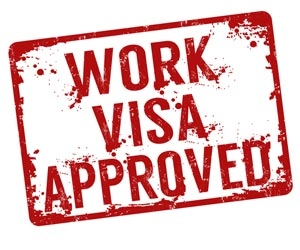Visa Options in South Korea
There are two types of visas available to U.S. and Canadian citizens. Those entering South Korea for fifteen days or more are required to obtain one of them.
Option 1: Short-term Visa
Most prospective English teachers in South Korea arrive on a short-term visa because there are fewer qualifications required than for the long-term visa. Short-term visas are intended for tourists and business people, since they apply to people who are staying ninety days or less. State your reason for travel as “pleasure” when filling out your customs forms. As in Japan, you can find employment, wait four to six weeks for a certificate of eligibility to be processed, then go to another country to pick up your work visa. To obtain a short-term visa, contact your local consulate.

Cultural visas don’t exist in South Korea. It is possible to get a student/training visa, but you won’t be allowed to work. Although the South Korean government doesn’t go out of its way to enforce this law, heed this warning. It’s impossible to change South Korean currency into dollars without a work visa. The South Korean won is not an international currency and must be changed to foreign currency (i.e., U.S. dollars) before you leave. To avoid this hassle, many teachers exchange money illegally at Namdaemun Market in Seoul. We discourage this practice.
Option 2: Long-term Visa
If you plan to stay in South Korea for longer than ninety days, you will need to apply for a long-term visa. You should apply one to two months in advance of your departure to allow for processing time. You can obtain a visa application from your local consulate. Send your completed application with the following:
- One copy of your valid passport (signed)
- A photocopy of your visa application
- Two driver’s license-size photos
- Two certificates of incorporation (the school’s – it will be in Korean)
- Two employment contracts
- Two guarantee supports from employer (Form 136) notarized in South Korea
- Two invitation letters notarized in South Korea
- Two resumes
- Your original college diploma plus a copy
- Two official copies of your college transcript. If the school provides you with only one copy of a document, it is acceptable to make a copy and send it with the original. Be sure to make a copy for yourself before sending any official documents or leaving them at the consulate.
When you arrive in South Korea, you will be required to apply for a residence certificate. Do this within the first ninety days at an immigration office. In some cases, your school will deal with the immigration paperwork for you. Once you arrive in South Korea, the Ministry of Education will need to approve your visa and residence permit. They require teachers to register with the U.S. or Canadian Embassy and to have the embassy notarize copies of the teacher’s resume. Call the embassy before going to have your resume notarized and to ask what the notarization fee is. Embassies do not accept checks, and often want exact change for their services.


 Teach English in Asia
Teach English in Asia  Cruise Ship Jobs
Cruise Ship Jobs  Alaska Fishing Industry Jobs
Alaska Fishing Industry Jobs  Sharing Economy / Gig Economy
Sharing Economy / Gig Economy